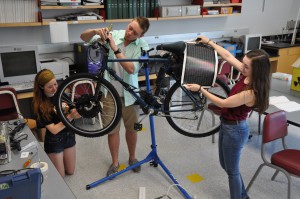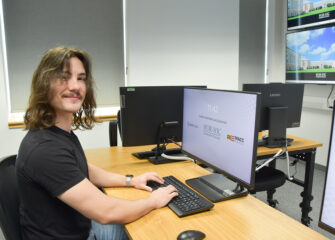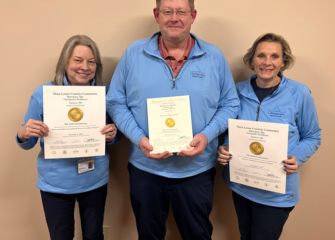
Learning Which Stretches
The Imagination and Spirit
By Dr. Diane D. Allen
Provost and Senior Vice President of Academic Affairs
Salisbury University
“They took us out on a 24-foot skiff and we spent the day with a boat captain doing environmental and biological experiments in the area around Cedar Island. We trawled with an otter net and oyster dredge. We pulled in a substantial catch and got to see a variety of aquatic life. We also did some clamming in the tidal marshes. This was my first experience with some of these things and it really sparked my interest.”
Salisbury University senior Gahr Lessner recalled the early summer days he and 11 other students spent traveling through Virginia’s Barrier Islands and other parts of the Eastern Shore in a kayak. They were enrolled in “Exploring Delmarva: A Water’s Eye View,” a five-week, six-credit summer class offered by SU.
Taught by two environmental studies faculty, Bill Nelson and award-winning Chesapeake Bay author Tom Horton, the experiential learning course was just one of the University’s many summer offerings.
Other current students, for example, engaged in independent and team research projects, supported by SU faculty mentors. Student scholars from other campuses, such as Clemson University, also were selected to come to Salisbury to participate in a National Science Foundation-funded “Research Experiences for Undergraduates” site that focused on emerging computing technology in science and engineering.
In addition, new incoming students signed up for outdoor orientation programs that are designed to help students transition to college by initiating self-discovery and forging friendships even before they arrive on campus.
One of these programs took freshmen to canoe the clear lakes of Algonquin Provincial Park in Canada. Other new students hiked, biked and camped in Acadia National Park in Maine. (Both programs are at least three decades old.)
The Acadia Adventure “provided me with friends before school started,” said Kiera Gallagher of New York. “Overall I learned that testing my physical limits outside of the classroom will help me in school. If I am having a hard time completing an assignment I can think back to Acadia and all the mountains I climbed and it will make me push myself to finish my work.”
With projects and advising continuing into the fall semester, students enrolled in these two courses earn three interdisciplinary studies credits. Two other programs explored Delmarva by bike, as well as the Assateague Island National Seashore.
Cycling was a theme on campus as well, as a team of three physics majors earned $1,000 in National Science Foundation (NSF) funding to construct a solar-powered e-bike. The project is part of SU’s NSF-funded Bridges for SUCCESS (SU Connections to Careers for Every STEM Student) program.
“This experience really helped me grow as a scientist because it forced me to think critically without always having the guidance of a professor or a textbook,” said senior Sam Brown, who worked on the e-bike along with senior Katie Murphy and junior May Palace. They hope to refine the design in the fall. Dr. Joe Howard of SU’s Physics Department was their faculty mentor.
Other SU student researchers explored topics ranging from dung beetles to bird populations that have been impacted by habitat change on the Lower Eastern Shore. All were funded by the NSF programs or by the Guerrieri Family Foundation.
These experiences represent, as Nelson calls it, “deep learning” for students. From camping on abandoned, rapidly eroding Holland Island to interacting with biologists, watermen and others, students involved in summer programs gain valuable first-hand experience that changes them as scholars ― and as people.
“I had never spent so much time in an exposed environment, and to be thrown into nature really showed me how harsh and unforgiving it can be, but also how beautiful it can be,” Lessner said. “Waking up at 5 a.m. and being in a kayak with our class for the sunrise is a moment I will never forget.”
Eastern Shore native Erin Lee said she gained new perspectives about topics she thought she already had established opinions about, such as pollution and conservation.
“There was so much I discovered,” she added.
As the fall term begins, we know she and the other summer students will build on these special experiences, enriching their academic lives and those of others.




